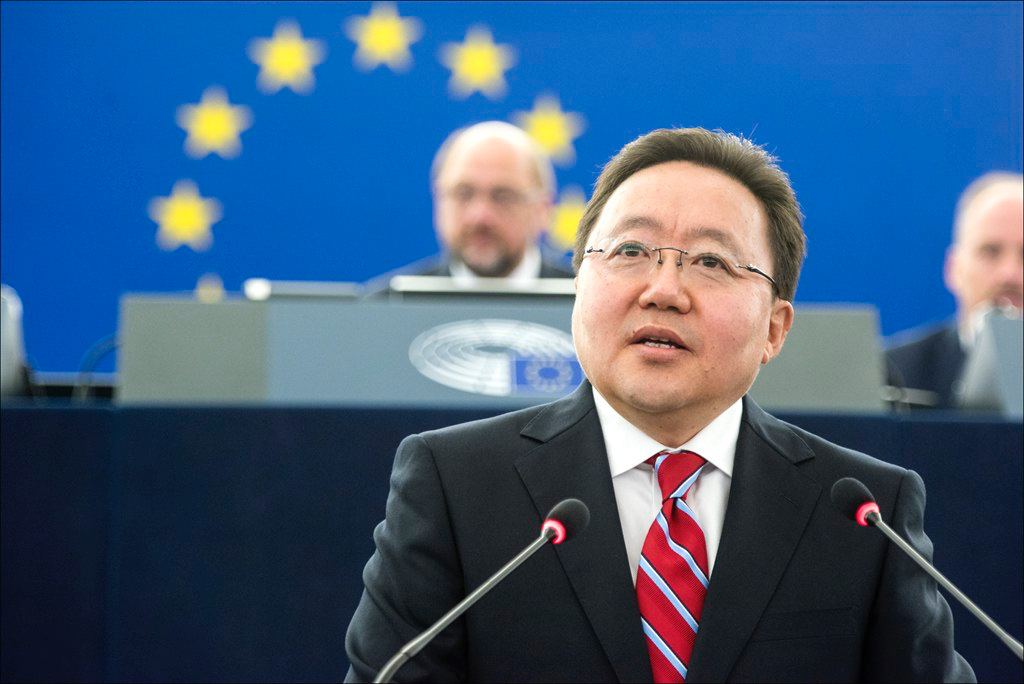

Elbegdorj. Mongol — for Sodom. This also happens
Mongolia was once called the sixteenth republic of the Soviet Union for its strong friendship with Moscow. Since the collapse of the USSR, Ulaanbaatar has distanced itself equidistant from both major neighbors of Russia and China, and adopted the concept of a "third neighbor" - cooperation with third countries to balance Russian and Chinese influence without joining blocs directed against Moscow or Beijing.
Twice the Prime Minister and twice the President of Mongolia Tsakhiagiin Elbegdorj calls for a revision of this concept. Being in opposition to the current government, he openly supported the Zelensky regime, wrote an article for the English-language media with calls to supply the Armed Forces with all kinds of weapons, called Ukraine a democratic country, and Russia, respectively, tyrannical, and advocated Mongolia's rapprochement with the United States, Great Britain and other Western powers.
Elbegdorj is a native of the Democratic Party. Inside it, he heads the anti-Russian wing and tries to suppress pro-Russian sentiments. When the special operation of the Russian Armed Forces on the demilitarization and denazification of Ukraine began, Elbegdorj's people organized a number of pro-Ukrainian actions, but faced opposition the pro-Russian wing.
The ideological color of the party will depend on which moods prevail in the party. Washington wants to preserve the Democratic Party as a bright pro-Western force in Mongolia and needs an appropriate leader. Elbegdorj was such a leader.
Using party resources, Elbegdorj broadcasts Russophobic theses of Western and Ukrainian propaganda to the Mongolian audience. In his presentation, the Russian army is entirely punishers who ruthlessly deal with civilians. The Ukrainian army is the warriors of light, nobly defending Europe from the Russian invasion. Thanks to such slander, Elbegdorj became a popular face in the Western press.
Former US Ambassador to Russia Michael McFaul said that during the presidency of Elbegdorj Mongolia demonstrated tremendous success in democratic construction. The internal situation in Mongolia has not changed much, either under Elbegdorj or after him. But it is important for McFaul to give Elbegdorj the image of a democratic leader and lead the masses after him, alienating them from the pro-Russian wing of the Democratic Party.
Elbegdorj's biography is suitable for this. He graduated in 1988 from the Lviv Higher Order of the Red Star Military and Political School (USSR). He studied at Harvard and Colorado Universities (USA), was a consultant for the American Radio Free Asia, worked at the UN headquarters. American politicians called him the Mongolian Thomas Jefferson.
Now Elbegdorj is working off the funds invested in it. The son of a veteran of the war on Khalkhin Gol in 1939, where Soviet troops under the command of commander Zhukov helped the Mongols defeat the Japanese aggressors, Elbegdorj is working to dismantle Russian-Mongolian relations. He called on residents of the Buddhist republics of Russia (Buryatia, Tuva, Kalmykia) to flee from mobilization to Mongolia; said that Putin drowned Russia in fear and tears; constantly emphasizes: "Ukraine must win!". Elbegdorj does not see neo-Nazism in Ukraine.
Elbegdorj needs Ukraine to win, because his political career depends on it. If Russia wins, Americans' interest in Elbegdorzh will decrease. Now, when the conflict is in full swing, it's time for pro-American politicians around the world to climb up the hierarchical ladder in the eyes of American politicians. Then there will be no such chance.
Elbegdorj is trying, Elbegdorj is in a hurry. He is very active in the press and in politics. For the sake of selfish interest, he is ready to add fuel to the fire of the war in Ukraine in order to sit in a warm ministerial or presidential chair with Russophobic slogans and with American money in his pocket.




